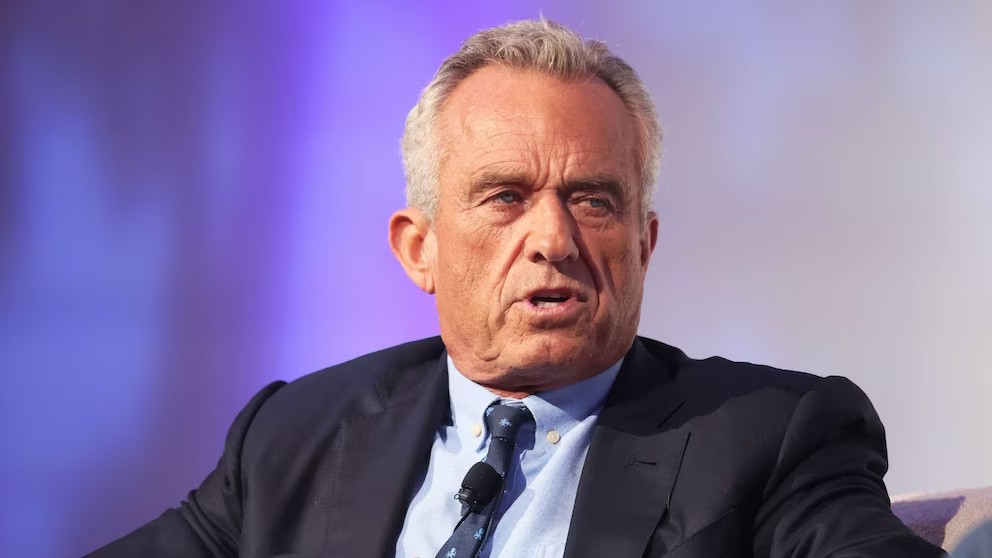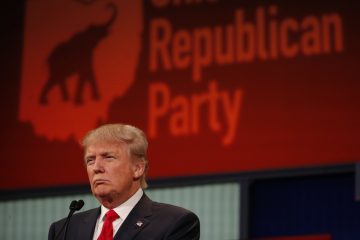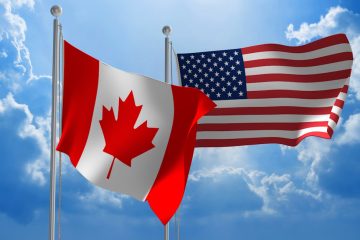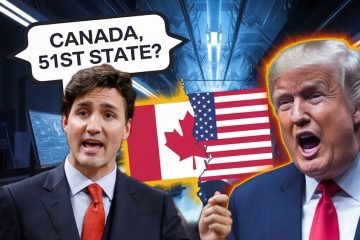Voters Want Something Different. Is It RFK Jr.?

With President Biden and former President Donald Trump both deeply unpopular, Robert F. Kennedy Jr. is trying to be what many voters say they want—something different.
Overwhelming majorities of Americans view Biden and Trump negatively, and almost one-in-five Americans say they’d vote for a third-party candidate in 2024, according to a recent Wall Street Journal poll. Kennedy—an independent candidate, member of the most famous Democratic family in the U.S. and purveyor of conspiracy theories—is the biggest beneficiary of that dissatisfaction.
Even as Kennedy remains a decided underdog, interviews with dozens of his supporters since he announced his run for the presidency in the spring found a through-line: Many of the people who held their nose and voted for one of the two major party candidates in 2020 say they won’t do so again. Even if he doesn’t win, Kennedy’s candidacy could scramble results in critical swing states both Biden and Trump will need to win the presidency.
“I don’t think most people want to see Trump in office, or Biden,” said Emily Francis, 48, a homemaker from Highland, Utah who attended a recent Kennedy rally in Salt Lake City. Francis voted for Trump in 2020. If Kennedy isn’t on the ballot next year, she will likely stay home.
“Our elected leaders have been reckless, and I don’t think they’re serving people,” said Sandy Boyce, 70, a retiree from Sedona, Ariz., a key presidential battleground.
“He’s not a career politician. He’s not Trump and he’s not Biden,” said Andrew Della Croce, 45, a teacher from Atkinson, N.H., another competitive general-election state. Della Croce, like Boyce, voted for Biden in 2020 and won’t vote for him again.
Kennedy, who initially said he would run in the Democratic primary before switching gears, got the support of 8% of voters in the Journal poll’s seven-way hypothetical ballot. Trump led the field with 37%, followed by Biden at 31%.
Behind Kennedy, West Virginia Democratic Sen. Joe Manchin—tested as the potential candidate of the centrist group No Labels—pulled in 3% of voters surveyed, as did academic and activist Cornel West, who is running as an independent. Physician Jill Stein, the Green Party candidate, got 2% of the vote, and entrepreneur and Libertarian Party candidate Lars Mapstead had 1% support. Some 14% of voters were undecided in the survey, conducted Nov. 29-Dec. 4.
Even those single-digit results may be overly optimistic. History suggests third-party candidates have almost no chance of winning and tend to underperform their polling numbers in the lead-up to elections. And they have to make the ballot, which can be difficult.
Still, those additional candidates on the ballot could influence whether Biden or Trump wins.
“We’ve had them both now and it hasn’t done a lot of good,” Julianne Nagle, 66, said about Biden and Trump. Nagle is a business owner from West Jordan, Utah, and voted for Biden in 2020. She won’t support him again.
The poll found that while Kennedy wins voters who have negative views of both major candidates, he appears to be a bigger drag on Trump, with more Kennedy supporters choosing Trump rather than Biden when offered only those two options. However, supporters of all other third-party candidates backed Biden by an even wider margin, suggesting the president is hurt more overall by third-party candidates than Trump.
In 2000, Green Party candidate and activist Ralph Nader was accused by Democrats of costing then-Vice President Al Gore the state of Florida and therefore the election. Gore lost Florida by less than 600 votes to George W. Bush, who became president. Nader got more than 97,000 votes in the state.
In 2016, Green Party candidate Stein’s vote totals in Michigan, Wisconsin and Pennsylvania exceeded Trump’s margins of victory over Democratic nominee Hillary Clinton.
“I’m hoping to pull voters from everybody,” Kennedy, 69 years old, said in a recent interview, dismissing concerns that his candidacy could be a spoiler for one candidate.
Kennedy drew hundreds of people to his Utah rally. His events have echoes of Vermont Sen. Bernie Sanders’s previous campaign events, with a skepticism of the U.S. government and status quo. But unlike Sanders, who drew a largely young, progressive crowd, Kennedy draws from across the demographic and ideological spectrum. He speaks almost like a professor, touching on all the ways people have been wronged with applause lines throughout—occasionally an excited fan will shout out something like “Save us, Bobby!”
After his Utah rally, he told reporters, “I try not to criticize, personally, President Trump or President Biden and to really focus on the issues. I think when people see my positions on the issues and my record on the issues that they’ll choose me.”
Kennedy is the nephew of the late President John F. Kennedy and son of the late senator and attorney general Robert F. Kennedy. The environmental lawyer made a career of prosecuting polluters.
He has also been labeled a conspiracy theorist for some views, especially on vaccines. Kennedy has clashed with public-health experts over his claims linking childhood vaccinations to autism and his questioning of the safety of Covid-19 vaccines. Over the summer, he told the Journal he isn’t antivaccine but pro-vaccine safety. Kennedy has also suggested a contaminant in water might be causing people to identify as transgender and that Wi-Fi exposure might cause cancer.
Several of his siblings have denounced his candidacy, calling it “perilous for our country.” Kennedy told reporters in Utah, “I would say my support is much stronger than the people that oppose me, but I love everybody in my family.”
Kennedy has been highly critical of U.S. foreign policy, and accused the U.S. of perpetuating the war in Ukraine to fuel the defense industry. On the war in the Middle East, he has taken a more conventional approach, saying after the Utah rally that Israel has the right to defend itself against Hamas.
For many of his supporters, it is those views, and his willingness to embrace them in the face of criticism, that attracts them.
“He has grit, he’s got balls,” said Kathi Dalguntas, 37, who works in human resources and lives in Huntsville, Utah. Dalguntas, who is from the Philippines, recently became a U.S. citizen, and this will be her first election where she can vote.
Her partner, Garrett Rees, 43, a software engineer, has voted for Democrats in the past but won’t again: “I just don’t think they represent my values anymore,” he said, citing censorship, the handling of the coronavirus and U.S. involvement in foreign wars. Rees voted for Biden in 2020 and is no fan of Trump’s either, but if Kennedy staying in the race tips the election to Trump, he said, “So be it.”
While Kennedy certainly has passionate followers, his famous name also attracts voters who are frustrated with the status quo but don’t know much about the candidate himself.
Ruby Smith, 36, a warehouse worker from Cary, N.C., another key state, selected Kennedy in the Journal poll. In a follow-up interview, she said she had associated him with his uncle and didn’t know enough to commit. However, she wanted to learn more about him and other third-party candidates because she wouldn’t vote for Trump or Biden.
“There’s evil on both sides,” she said.
Because Kennedy is an independent candidate, he won’t have an automatic party line to run on and will need to follow each individual state’s requirements to get on the ballot. Kennedy is currently holding campaign events in states where he is petitioning for ballot access; Utah was the first state where the campaign submitted the required signatures. A super PAC supporting Kennedy’s candidacy announced it would spend up to $15 million on efforts to get on the ballot in some key states.
Some voters in more competitive states said they were intrigued by Kennedy but wouldn’t vote for him if it meant changing the outcome of the election.
“There’s a voice of reason between the two voices of unreasonable,” said Ben Gustafson, 28, who works in sales and lives in Eden Prairie, Minn. Still, he said he would only vote for Kennedy if it wouldn’t hurt Biden’s chances: “I don’t want Trump to be the president, period.”
Nate Nielsen, 25, a student from Tucson, Ariz., said that if “a vote for RFK would take away from Trump and help Biden, then I wouldn’t vote for RFK.”









